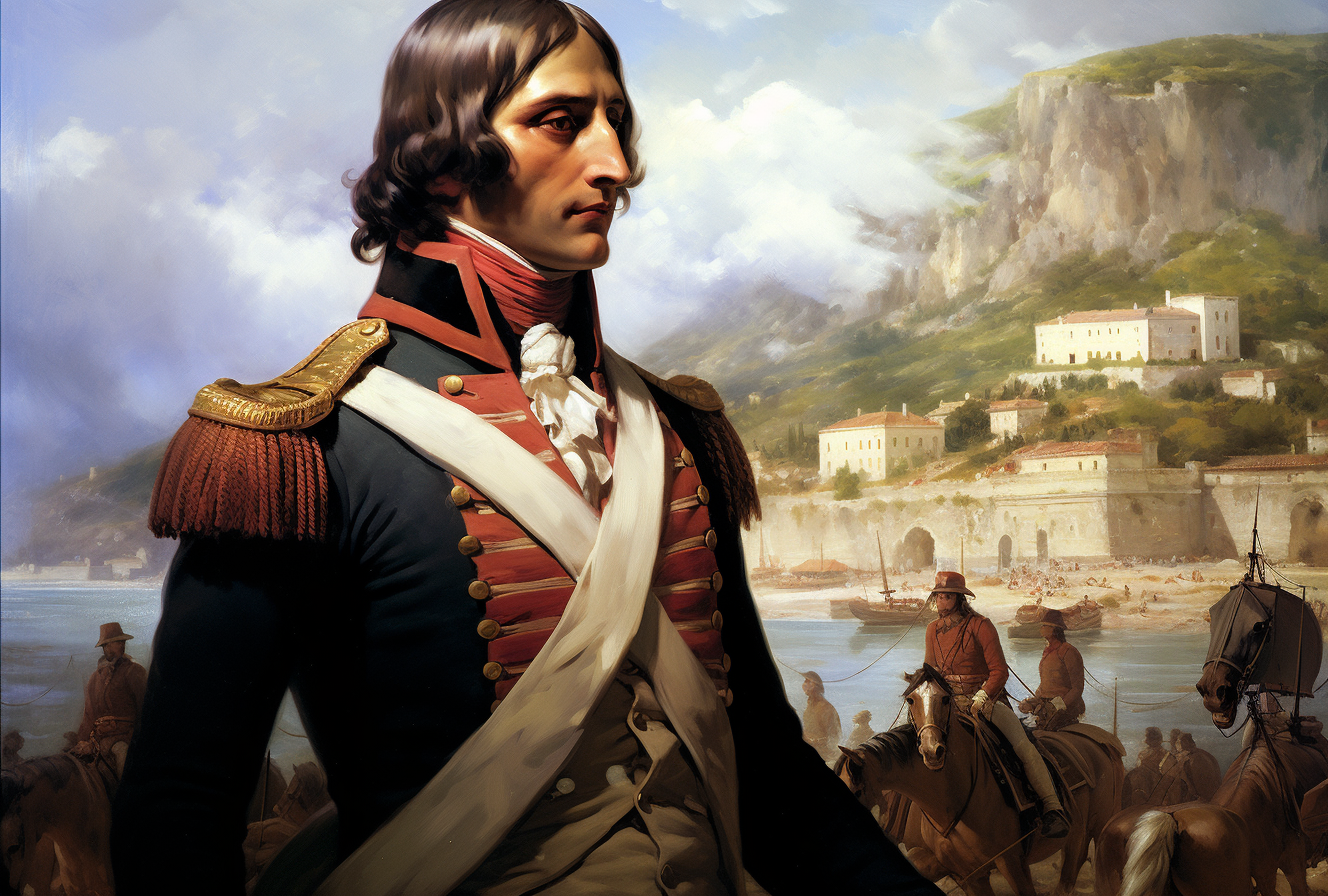Napoleon’s first military defeat was at La Maddalena in 1793
In February 1793, a young and ambitious French officer named Napoleon Bonaparte faced his baptism of fire. Not on the European plains that later would have dominated with its grandiose artillery and cavalry, but among the rocks and waves of Sardinia, near the island of La Maddalena, an event that few historians remember.
And that even the cinema has ignored: including thelatest film, Napoleon, directed by Ridley Scott and in theaters these days with considerable audience success.
But what happened that year, when Napoleon, corsican of birth, was 24? The French fleet, anchored in the port of Bonifacio, swarmed of activity in preparation for what was hoped would be a glorious campaign for the conquest of Sardinia. The corvette Fauvette, armed with twenty guns, was accompanied by sixteen minor vessels, ready to challenge the Sardinian forces.
However, an initial assessment revealed that the available armament was not sufficient for a decisive victory. Despite the difficulties, four cannons were transported with great difficulty from the citadel to the Fauvette, a difficult task accomplished without the aid of workers or looms, but with the pure force of will and arms.

On 22 February 1793, the fleet sailed to Sardinia, but was soon hit by a violent wind that made landing impossible. After an initial retreat to Bonifacio, only Fauvette, carrying Bonaparte and his artillery staff, managed to navigate, awaited by a fate that would defy their expectations.
Two days later, the landing attempt at La Maddalena was met with enemy fire. The Sardinians, well positioned and armed, were ready to defend their territory. The French corvette sufferedlittle damage, but a man was killed, marking a dark omen for the expedition.
The plan of Colonna-Césari was to take possession of the island of Santo Stefano and from theredirect operations. Despite the well-protected port and the fortified tower of Santo Stefano, the French advanced. The night of 22-23 February saw a division of French troops entrench on the island, despite initial opposition from the Sardinians.
"It was a good time for everything to be decided in war," Bonaparte said, reflecting on his proposal to storm La Maddalena at night. However, the command did not follow his ardor, and the night passed without significant actions.
On the 24th they opened fire on Maddalena. Bonaparte, with the same energy with which he had helped establish the entrenchments, commanded the bombardment. A cannonball so the parish church: that ball was kept as a relic for years. The damage was limited.
However, the resistance encountered was more tenacious than expected. The determination of the defenders of Maddalena and the incessant bad weather combined against the French, exhausting them.
The hero of that day was Domenico Millelire. Who - along with other magdalenians - led the resistance to the French by installing a battery at Punta Nera and cannoning the Fauvette. The French searched for shelter, but were hit again by the cannonballs thrown by Domenico Millelire, who had then placed the cannon at Capo d'Orso.
Domenico Millelire, pseudonym of Domenico Leoni, was the first to have the gold medal for military valor of the Italian armed forces.
The crew of Fauvette mutinied and Colonna-Césari ordered the retreat, although Napoleon did not agree.
The story tells us that the expedition ended as it had begun, amid the waves and uncertainties of a stormy sea. The retreat was ordered, marking one of the first and few defeats in Napoleon’s military career. A failure that the future emperor would never forget, a scar in his pride that he would take with him during his extraordinary rise to power.
The battle for La Maddalena remains a little-known chapter in Napoleon’s life. In later years, he would often meditate on this early defeat. As for Bonaparte, he kept the memory of this adventure for a long time.
He will recall 1793 in his service documents. At the beginning of his Memoirs on the War of Italy he mentions this counterattack commanded by Colonna-Cesari. Also in Sant'Elena he told of having seen for the first time the fire in Sardinia.
But he will always remain silent about the role he played. Bonaparte was under orders; he had to witness, as an impotent spectator, a shameful defeat; he had to leave in the hands of the king of Sardinia the mortar he had pointed with his hand; he was not a man who could not keep such a wound to his incurable self-esteem.
(This story - extracted in part from "Expédition de Sardaigne. Le liuetenant-colonel Bonaparteà la Maddalena (1792-1793)" by Èloi Jean Peyrou - is part of the commitment of UniOlbia to promote the history of Olbia and Gallura as a constituent element of its cultural action)
(Images created with the AI of Midjourney based on a portrait of Napoleon made by Henri Félix Emmanuel Philippoteaux in 1794)